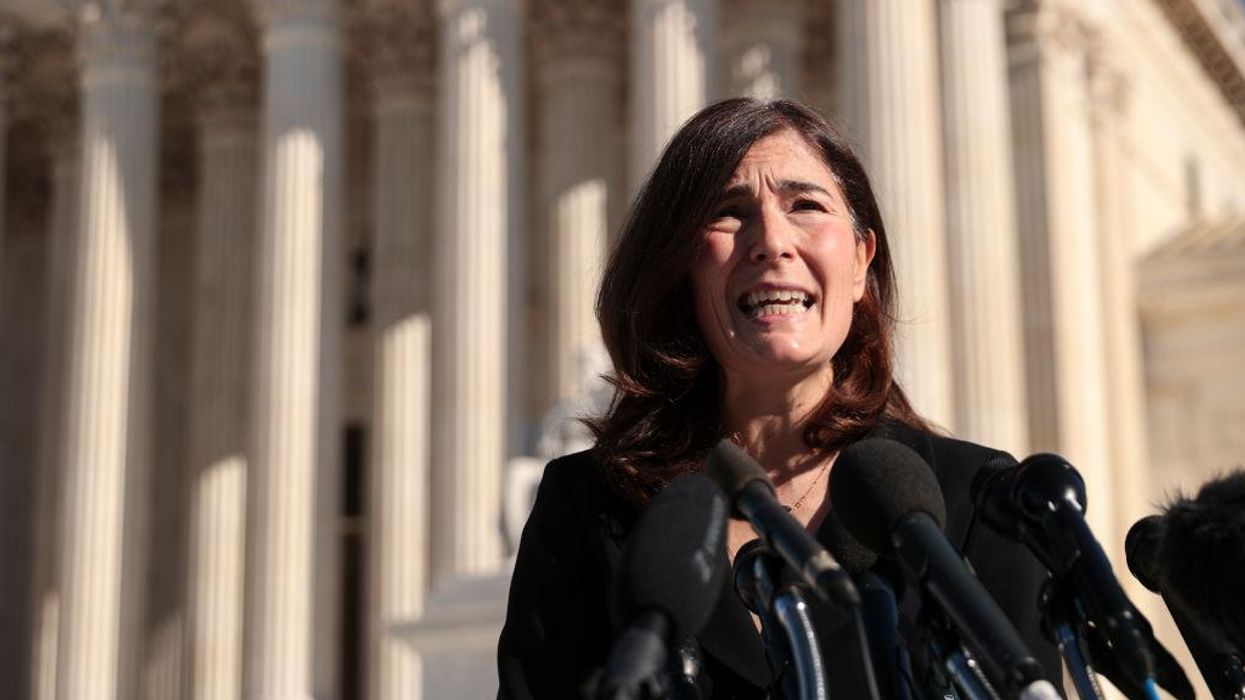
Photo by Chip Somodevilla/Getty Images

In her confirmation hearing before the Senate Judiciary Committee on September 21, Julie Rikelman faced scrutiny from Republican senators over whether she would enforce the Supreme Court's 2022 Dobbs ruling. Although she answered in the affirmative, stating that she would follow it just as she would follow all Supreme Court precedents, not all were convinced. After all, Rikelman was the career abortion advocate who argued on behalf of the Jackson Women’s Health Organization in the case that resulted in Roe v. Wade's overturning.
President Joe Biden nominated Julie Rikelman on August 1, 2022, to serve on the U.S. Court of Appeals for the First Circuit in Boston. If confirmed to this lifetime position, Rikelman would replace Judge Sandra Lea Lynch.
Rikelman, who served for nearly a decade as senior litigation director for the Center for Reproductive Rights (CPR), a pro-abortion advocacy organization, suggested in a December 2021 Salon interview that academic, financial, and professional gains enjoyed by women were made possible by abortion.
Claiming abortion to be a right, she indicated that one of her biggest goals was "to make sure that the voices of women were heard at the court and were present in the courtroom ... to make sure that the impact of taking this right away, something the court hast [sic] never done, ... would be felt."
Touted by her alma mater as a "warrior for reproductive rights" and ranked second on InStyle's 2022 list of "The Badass 50," Rikelman was lead litigator for the plaintiff in the 2020 Supreme Court case June Medical Services LLC v. Russo, where the high court ruled in favor of her client, which had challenged a Louisiana state law placing hospital admission requirements on abortion clinic doctors.
After the decision, Rikelman told the Harvard Gazette that "it's really important for people to remain vigilant, because we know that the opposition is relentless," arguing that laws like Louisiana's must be "permanently blocked."
Prior to the Supreme Court's 2022 Dobbs ruling, she recommended "expanding access to abortion," stating that the "status quo is not good enough" and that she was committed to the "battle against outright bans on abortion."
On Wednesday, Rikelman claimed that she would "apply Dobbs faithfully," separating her lifetime of abortion advocacy from her potential work as a federal judge.
Sen. Josh Hawley (R-Mo.) drew attention to a 2018 article penned by Rikelman, wherein she deemed pregnancy resource centers to be "faux clinics." Concerning those individuals from such centers who had previously testified before Congress, Hawley asked, "Is your testimony here that these folks are lying under oath ... that these centers are all fake?"
Rikelman, who refused to speak to her own views on abortion, reiterated that she would keep her role as advocate and her prospective role as judge separate.
Sen. Chuck Grassley (R-Iowa), similarly concerned with Rikelman's vocal opposition to pregnancy resource centers, asked whether she would recuse herself in cases where they are involved.
Rikelman answered, "I will carefully look at the recusal statute and consider all of the circumstances of the case, consult with my chief judge, and do absolutely whatever the code of traditional conduct requires."
Sen. Ted Cruz (R-Texas) pointed out that it may be difficult for Rikelman to disentangle a passion for abortion to which she has devoted her life from the duties of the post for which she was nominated. He stated that her support for full legalization of abortion, including in the ninth month of pregnancy, is well outside the mainstream.
Cruz cited Rikelman's nomination as part of a broader effort by President Joe Biden to "fundamentally change our judiciary." He said, "Biden has decided with the complicity of Senate Democrats to abandon the notion of fair and impartial judges who apply the law and instead to fill the bench with partisan zealots."
Cruz told Rikelman that her career embodies "precisely this pattern," having spent the majority of her professional life as "an extreme zealot advocating for abortion."
Sen. Mike Lee (R-Utah) referred to a statement made by Rikelman wherein she said the impact of Dobbs will be "swift and severe," insisting that "we are on the verge of what may be the biggest public health crisis we have ever seen in decades."
"In a world in which more babies are being born and being born alive than being aborted, you call that a public health crisis?" Lee asked, ahead of invoking the COVID-19 pandemic and AIDS epidemic as historic crises that might also have qualified for the top spot.
Rikelman responded by saying that her comments, which were made in an advocacy report, pertained to "the implications of forcing women to give birth against their will, not about the implications for women who want to have a child."
Sen. Tom Cotton (R-Ark.) questioned Rikelman about her approach to violent crime, noting the relevance of her answers amid skyrocketing levels of murders "not seen since the 1990s."
Cotton suggested that much of the spike in violent crime can be attributed to "left-wing pro-criminal policies" like those Rikelman advocated for in her 2007 article in the Baylor Law Review, where she "argued that it was unconstitutional for law enforcement to log DNA samples from convicted criminals." In response to her answers, Cotton suggested that Rikelman misrepresented the article before the committee.